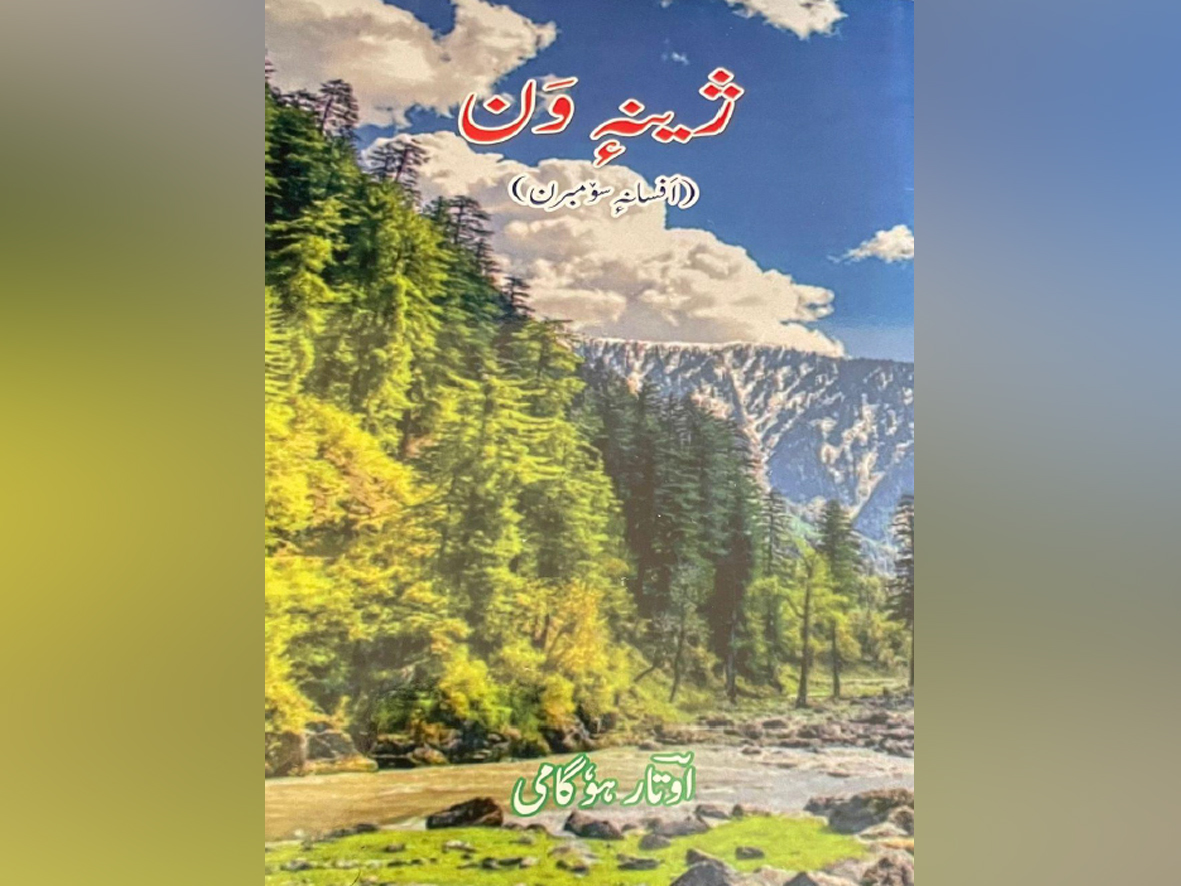Upender Ambardar
Name of Book: “TSENEVAN”
Author : Avtar Hugami
The book titled , “Tsenevan” , is a compilation of 25 open ended short stories, written in Nastaliq Kashmiri. It has been written by the poet turned acclaimed Kashmiri short story writer Avtar Hugami.
The short stories contained in the book explore diverse themes ranging from social uneasiness, moral concerns , societal dilemmas and behavioural duplicity. The main characters introduced in the fictional narrative are mostly devoid of any baggage of any backstory as they move between observations, memories, emotions, construction and deconstruction of the intertwined cords of the plot settings. The author has only presented a structural plot having a sequence of events but their ends have purposely been left unresolved. The plots of the stories are drawn from ordinary observations, to which the reader gets instantly drawn. The included short stories are characterised by a minimalist form of writing format. In it the author refrains from giving any sort of judgemental opinion and the reader is left free to judge the story and to frame the conclusion as per the individual imagination.
In one of the first short stories, titled “3, 13 tae 23”, the fallacy, abrasions and lack of value based approach in the present day electoral politics has been explored by the author, with the end remaining inconclusive. The elements of haunting nostalgic memories, heartfelt recollections and physical separation from the ancestral home are juxtaposed by the author in the story titled “Aakh”. In it, the reader is again left free to make a guess about the conclusion. The helplessness, compromised thinking, toxic silence, absence of denunciation and frightfulness form the outline of one more open ended story, titled “Aghva”, meaning abduction. In one more unconcluded narrative titled ” Mashrabh ” meaning forgetting, the dilemma of disremembering and its down setting social effects form the plot of the said story. The odious issue of bribery, which presently has assumed monstrous proportions has deftly been woven into another loose ended story, titled ” Paan Laaev ” , meaning ritual of libation. All the short stories are also lavishly laced with a large number of kashmiri proverbs and adages. They have skillfully been integrated into the narrative structure of the stories by the author. All of them are intensely expressive and have assumed the shape of complete statements on their own in the fictionalised narratives.
Lastly, even the selected title of the book “Tsenevan” seems to be speculative in nature and it evokes myriad meanings. To sum it up, the book, under review, titled “Tsenevan”, authored by Avtar Hugami makes an engaging and engrossing reading.
Trending Now
E-Paper


